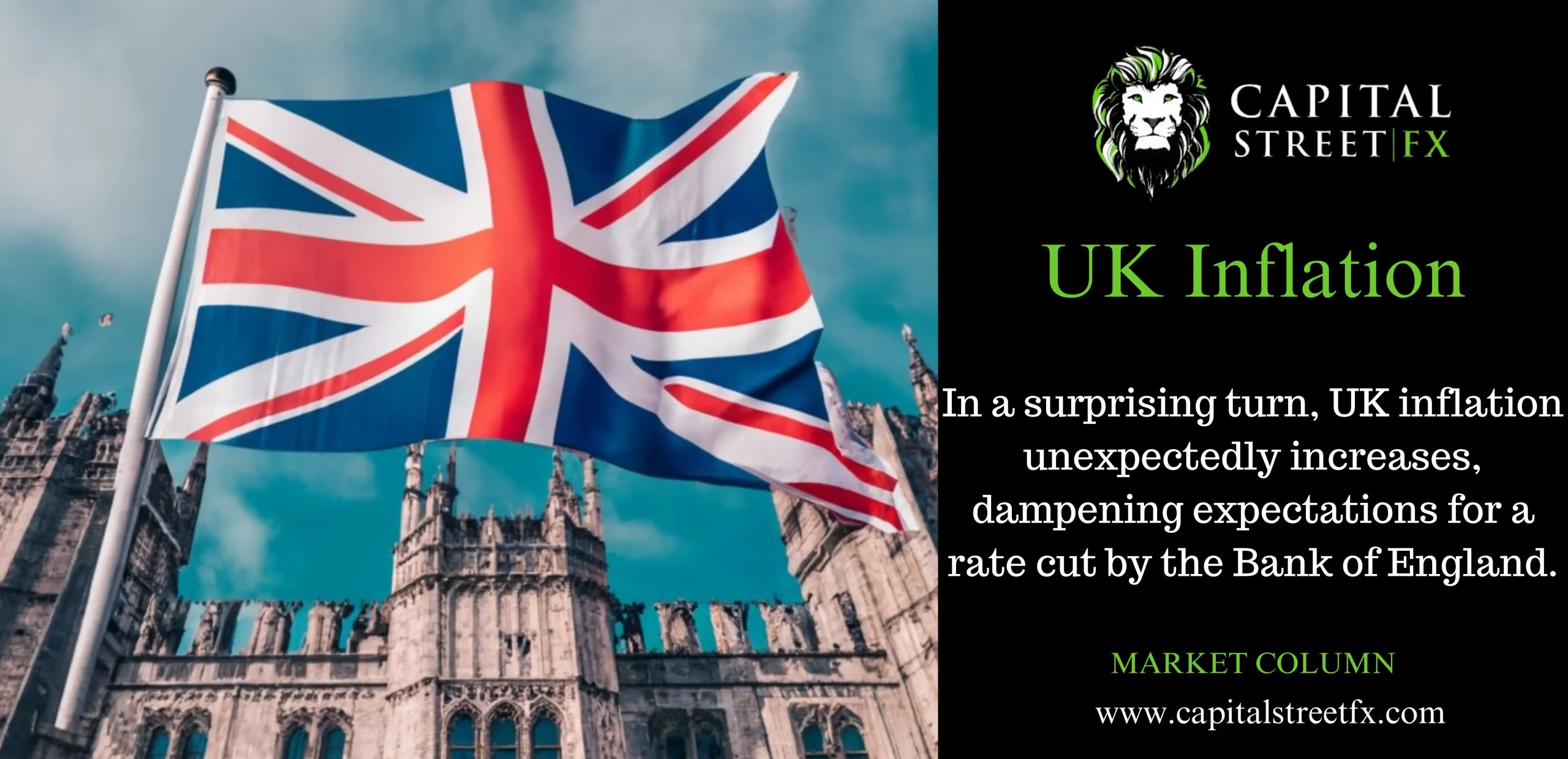In a surprising turn, UK inflation unexpectedly increases, dampening expectations for a rate cut by the Bank of England.
The annual consumer price inflation (CPI) rate in the UK accelerated for the first time in 10 months in December, climbing to 4.0% from November’s more than two-year low of 3.9%. This development contradicted market expectations for an imminent rate cut by the Bank of England.
The notable increase can be attributed to a significant hike in tobacco duty and a more pronounced influence from seasonal airfare increments. This contrasts with the anticipated decrease to 3.8% as suggested by a Reuters poll of economists.
Following the release of the data, the British pound gained strength, and there was a notable increase in British government bond yields. Concurrently, interest rate futures suggested an approximately 60% likelihood that the Bank of England would initiate rate cuts by mid-May, a decrease from just over 80% late on Tuesday.
Between December 2021 and August 2023, the Bank of England increased interest rates on 14 occasions, reaching a 15-year peak of 5.25%. This move was in response to a surge in inflation, which reached a 41-year high of 11.1% in late 2022 and demonstrated a gradual decline thereafter.
Nevertheless, inflation started declining more rapidly than initially anticipated in the later months of the previous year. Consequently, numerous economists forecasted that it would return to the Bank of England’s 2% target by April or May of the current year, roughly 18 months ahead of the Bank of England’s projections.
The upturn in the UK’s inflation rate in December mirrored similar increases in the Eurozone and the United States. In contrast to earlier in 2023, British inflation is no longer markedly higher than that in other major advanced economies.
Michael Saunders, a former Bank of England policymaker, remarked on BBC radio that the recent data does not contradict the broader trend of declining inflation.
He highlighted that inflation is decreasing more rapidly than anticipated a few months ago, and the Bank of England might contemplate the possibility of lowering interest rates later this year, potentially commencing around the middle of the year.
With Britain’s economy growing only by 0.2% in the 12 months ending November and a weak outlook for 2024, households have experienced a decline in living standards over the past two years due to high inflation.
This poses an electoral challenge for Prime Minister Rishi Sunak, who has hinted at holding a national election in the second half of the year.

